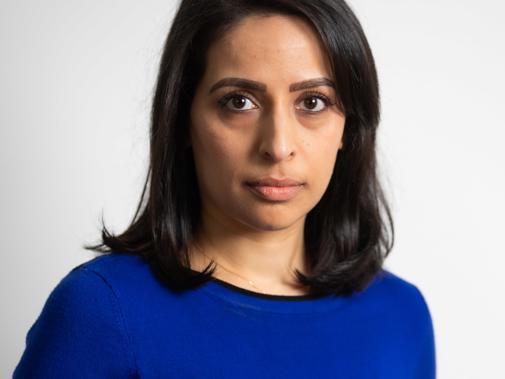At the BMA, we firmly believe we are here to represent all doctors.
That doesn’t – and shouldn’t – mean treating everyone in exactly the same way. But it does mean looking at people’s needs and ensuring the medical profession is inclusive, and values different experiences and insights that people can bring.
Sometimes as a profession we’ve not been very good at that. If you look at the history of medicine, there is little doubt that in the past we have been guilty of discrimination – of using words and taking actions that have been the opposite of valuing diversity.
It’s not always a question of being overtly discriminatory – although there are examples of that too. It’s also been about not being proactive, not calling out patient injustices, not being allies to those who don’t fit the still-enduring medical stereotype of the straight, white, cisgendered male.
This has clearly been the situation when it comes to our members who are LGBTQ+. We know that in the NHS and in wider society, the LGBTQ+ community is disenfranchised, and are negatively affected in many ways: accessing services, being unable to speak out, facing bullying and harassment, often working in environments that make it detrimental to be open about their lives, loves and family.
At the BMA, we’re looking inwards as well as outwards, to see how we can proactively support members who are LGBTQ+. What can we, as a trade union, and a professional association do that we aren’t already doing? We also need to be honest about our own history on this.
We’ve been looking at our archives and we’ve found the BMA made homophobic statements, for example in the 1950s, when submitting evidence to Parliament.There were things said that are simply not true and statements we do not believe.
They do not represent the values of our association today. I don’t believe we should sweep our own history under the carpet. We may have been operating in the context of an unfair society, but we still should have been doing more. We should have been proactive, we should have been calling it out.
So what are we doing now? On behalf of today’s BMA leadership I apologise for those failures of the past. I apologise to the people and communities affected. We recognise that homophobia didn’t just affect LGBT+ doctors and medical students, but our patients too.
Because we know that what the BMA says – or doesn’t say – has a ripple effect in the NHS and in wider society too. We need to hold ourselves to a higher standard, apologise, and commit to doing better. In association with GLADD, we have launched a survey on sexual orientation and gender identity.
We hope all doctors and medical students will complete it to help us understand how we can create an inclusive environment. It shouldn’t just be up to members of the LGBTQ+ community to fix this – we all have a part to play – and I would urge you to make your views known. This month has also seen International Women’s Day, give us the opportunity to reflect on inequalities.
Again, the BMA’s history on sexism doesn’t bear much scrutiny, and again, I apologise to the women who have not been represented in the way they should have been. But I do believe as an organisation we have made, and continue to make, significant strides.
As I have said before, I am only the fourth woman at my level in the BMA in two centuries. That’s extraordinary in what it says about the BMA of the past, and what is says about the way the BMA has changed, but it’s not my achievement , rather, it’s about the members of the representative body who decided they would put their faith in a woman, in a junior doctor, in a minority ethnic doctor.
We now have more women in senior elected positions than ever before and we need this to continue. At the BMA, we have a programme of work looking at eradicating sexism in medicine, but we also want to celebrate the brilliant things women are doing.
Our Voices of Women campaign wants to hear from as many of you as possible, so that we can amplify and showcase what BMA women are doing, and can achieve.
You never know who you might inspire, you don’t know who you are being a role model for. So please, share your stories at [email protected]
Dr Latifa Patel is interim chair of the BMA representative body

